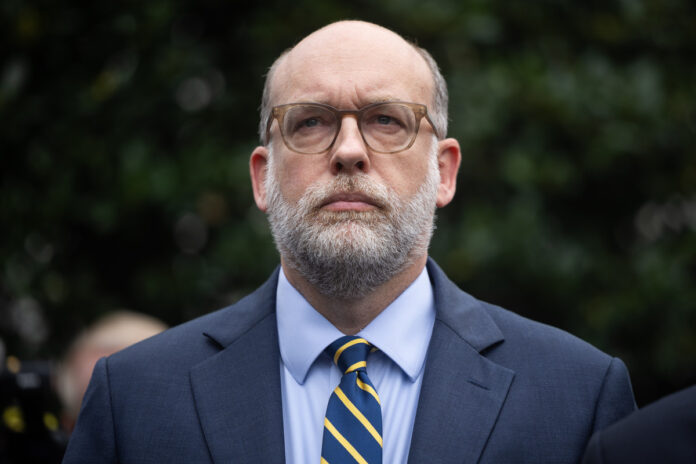
Written by Were Kelly
The Trump administration has taken a decisive step towards the potential closure of the Consumer Financial Protection Bureau, filing a legal document that declares the agency’s independent funding mechanism unconstitutional and barring it from accessing its financial reserves at the Federal Reserve. The move, submitted to a US court on November 11-12, threatens the very existence of the watchdog agency by early 2026, setting the stage for a profound shift in the American financial regulatory landscape. This legal manoeuvre challenges the core operational structure of the CFPB, which was deliberately designed after the 2008 crisis to be insulated from political pressure by receiving its funding directly from the central bank rather than through the annual congressional appropriations process.
The court filing from the Justice Department lays out the administration’s position with stark clarity, stating, “The CFPB’s perpetual draw from the Federal Reserve’s earnings, absent the congressional appropriations process, is an unconstitutional anomaly.” This argument resurrects a long-standing conservative critique of the agency, which has been a thorn in the side of large financial institutions since its creation. The CFPB has returned billions of dollars to consumers through enforcement actions against banks, mortgage servicers, and payday lenders for unlawful practices. A long-serving complaints analyst at the CFPB, who spoke on condition of anonymity, voiced the concerns of many within the agency, asking, “If we shut down, who will these families call? The banks have an entire legal department; the average person just has us.”
The potential dismantling of the bureau has been met with fierce opposition from its architects and consumer advocacy groups. Senator Elizabeth Warren, who conceived of the agency, lambasted the administration’s action. “This is a blatant attempt to gut the one agency dedicated to protecting everyday Americans from financial predators,” Senator Warren stated. “They want to put the wolves back in charge of the henhouse.” Proponents of the CFPB argue that its independent funding is precisely what allows it to effectively pursue complex, long-term cases against powerful financial entities without fear of its budget being slashed by politically influenced appropriators.
The implications of a CFPB shutdown extend far beyond the agency’s Washington headquarters. It would leave a significant vacuum in federal consumer financial protection, potentially emboldening bad actors in the lending and banking sectors. State attorneys general might attempt to fill the gap, but they lack the singular focus and nationwide authority of the CFPB. For millions of Americans, the agency’s public complaints database and direct intervention services have been a primary recourse for resolving disputes with financial companies. The legal battle over its funding is now poised to become a defining fight over the legacy of post-crisis financial reform, with the financial security of ordinary consumers hanging in the balance. The court’s decision on this matter will determine whether one of the most consequential regulatory bodies of the last two decades will be allowed to continue its work or be consigned to history.


















